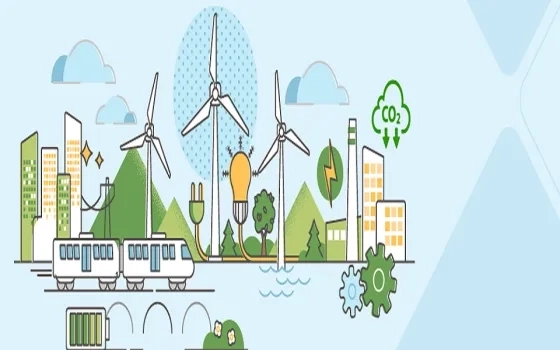As the state of the climate remains ever-worsening, and it continues to become increasingly evident that climate change is a problem we cannot hide from, many turn their heads towards large corporations and their hand in this. While many have encouraged citizens to reduce their own carbon footprint by turning off electrical appliances like fans, lights, and air conditioners when they are not required, many studies have shown that a change in household usage of energy is unlikely to have a lasting effect on the situation, even if done at a large scale. Researchers have discerned that the majority of the impact on climate change comes from the massive amounts of emissions from governments and large companies with their irresponsible and careless practices. Furthermore, the issue has become of some urgency as researchers also claim that it is only a matter of time before we cross the proverbial Rubicon with respect to climate change. Therefore, it is important that the world holds these organizations accountable for their iniquity before it is too late for a change to be made.
"The US EMITTED alomost 40% of the world carbon in 2022"
Although some may argue there need to be gross systemic overhauls in the way energy is created and used, there are a few primary ways that the carbon that is emitted by these companies can be reduced in the short and long term. Despite a lot of these solutions being quite expensive and likely eating into large parts of firms’ profit margins, it is long overdue that companies become more conscientious about all stakeholders other than just shareholders.
The following are three ways companies can integrate sustainability into their daily practice:
Sustainability Audits (Internal and External)
• Encouraging Longer Product Life Cycles and Limiting Waste
• More Efficient Energy Practices

1. Sustainability Audits Capitalism has enjoyed its fair share of critics over the decades, but one common piece of commentary tends to be that it incentivizes the depletion of natural resources. Many businesses run on natural resources, while others hurt them through irresponsible practices; it is patently regular that firms with growing revenue will also reflect higher carbon emissions. While they are not directly related, there is a strong causal relationship between the two that has had many questioning whether the system is the issue rather than anything else. However, this is something that is challenging to change as it would take global reforms at an unprecedented scale to even make a dent at this.
Experts have suggested that governments mandate certain changes to improve the level of environmental consciousness observed within companies. However, others have rebutted, claiming that companies should look inward for these mandates (from the board or corporate executives) rather than outwards from state and federal governments. As a result, many companies have created sustainability divisions that ensure that the company reaches certain goals every year in reducing their emissions and managing energy usage.

A strong example of the above would be Volkswagen. Although they have been involved in their own emissions-related controversies and scandals, with the help of a strong sustainability division, they have claimed that they will be ‘net carbon-neutral’ by the year 2050. Initially, this seemed ambitious, but the company has taken large strides in reducing its carbon footprint since the inception of this plan. At the same time, however, many firms have used sustainability divisions to show interest in improvement despite the true motive being more superficial.
This lack of commitment is a strong disadvantage of this strategy as it often means that companies can wash their hands of any requirement to work towards improvement by simply saying they have done enough. This phenomenon of ‘greenwashing’ has presented itself globally in many different forms. Whether it is companies blatantly altering their numbers or others making goals for the future that they simply do not genuinely hope to achieve.
Nevertheless, having real sustainability audits has been an integral first step towards more conscious practices and, when done right, can have crucial impacts on the company and its footprint going forward.

2. Encouraging Longer Product Life Cycles and Limiting Waste
Apple has landed in hot water several times with claims that they intentionally reduce older devices’ battery lives and make them slower and generally more difficult to use to incentivize users to consider purchasing new ones. This strategy, although emphatically denied by Apple spokespeople, has been very controversial.
From a company perspective, however, it is extremely efficient and profit-boosting when old customers are forced to cast away old devices as they have been strong-armed into buying a new one. Although it is also quite likely that older Apple devices slow down over time because the hardware wears down and cannot keep up with newer, more demanding software, it speaks to a larger issue of intentionally low product life cycles to ensure long-term success.
"The US has the third most Electronic waste generated per capital at 19.4 Kgs."
As was briefly touched on earlier, anti-capitalists have asserted that the system encourages practices that are harmful to the environment. Another important example is how companies manufacture and update devices to ensure their life cycles are reduced to the lowest acceptable point to force consumers to purchase replacements. This has created a massive issue of waste, especially electronic waste, which is difficult and expensive to be recycled. In recent years, the average life cycle for a phone has reduced, further contributing to the global issues that come from the large amounts of electronic waste. While increasing product cycles might be counterproductive to business, companies have resorted to increasing the life of supplemental products such as chargers and adapters (as they too contribute a lot to e-waste landfills).For example, the European Union has mandated that all electronic devices sold after the autumn of 2024 within the borders of the EU27 must come equipped with a USB-C charging port. This means that users buying devices from then onwards can rest assured that all their devices will use the same cable, meaning that companies will no longer have to ship cables with each purchase. Not only will this reduce costs for the company but also reduce electronic waste coming out of ruined cables and adapters that one must carry when using many different devices (in addition to the obvious convenience of only having to carry one charging wire for all one’s devices).

3. More Efficient Energy Practices
As companies grow bigger, they hire more employees, increase the number of offices they own, and expand their manufacturing plants. All of this contributes to increasing carbon emissions. This is because these companies run on non-renewable sources of energy that emit worrying amounts of carbon into the atmosphere when utilized. However, if these companies were to convert to renewable sources of energy such as wind, solar and hydro, these emissions would be greatly reduced..
This strategy, albeit very effective in curbing carbon emissions, is hard to incentivize for a company given its generally high investment requirement. However, over time, we have seen companies care more and more about their reputations when it comes to certain things. With the culture of supporting businesses that are more conscious of the environment, among other things such as social issues, firms are trying much harder to work towards renewable sources of energy. In the last few years, the US has seen a massive increase in solar energy usage by large companies, especially retailers. For example, Target, Walmart, Kohl’s, Ikea, and Costco all rank among the top ten solar energy used by large companies in the US (with Target coming in first). However, Apple and Amazon were the only two tech companies to rank on that list. This shows that the tech companies are lagging and must improve their practices as soon as possible.
To Sum Up
All the strategies mentioned above can be expensive, difficult to effectively execute, and often may not make sense from a financial standpoint. The system that has been cultivated for generations is one that is severely flawed and is close to impossible to alter so late in the development of civilization and society. However, it is still possible for those in power to catalyze these changes to save the planet. If governments were to incentivize these changes by offering different advantages such as tax rebates as a reward for more conscious and environmentfriendly practices, there would be changes taking place. In general, while it is important for all different types of companies to make their changes, it is integral that governments work in tandem with that to help improve the situation too.
















